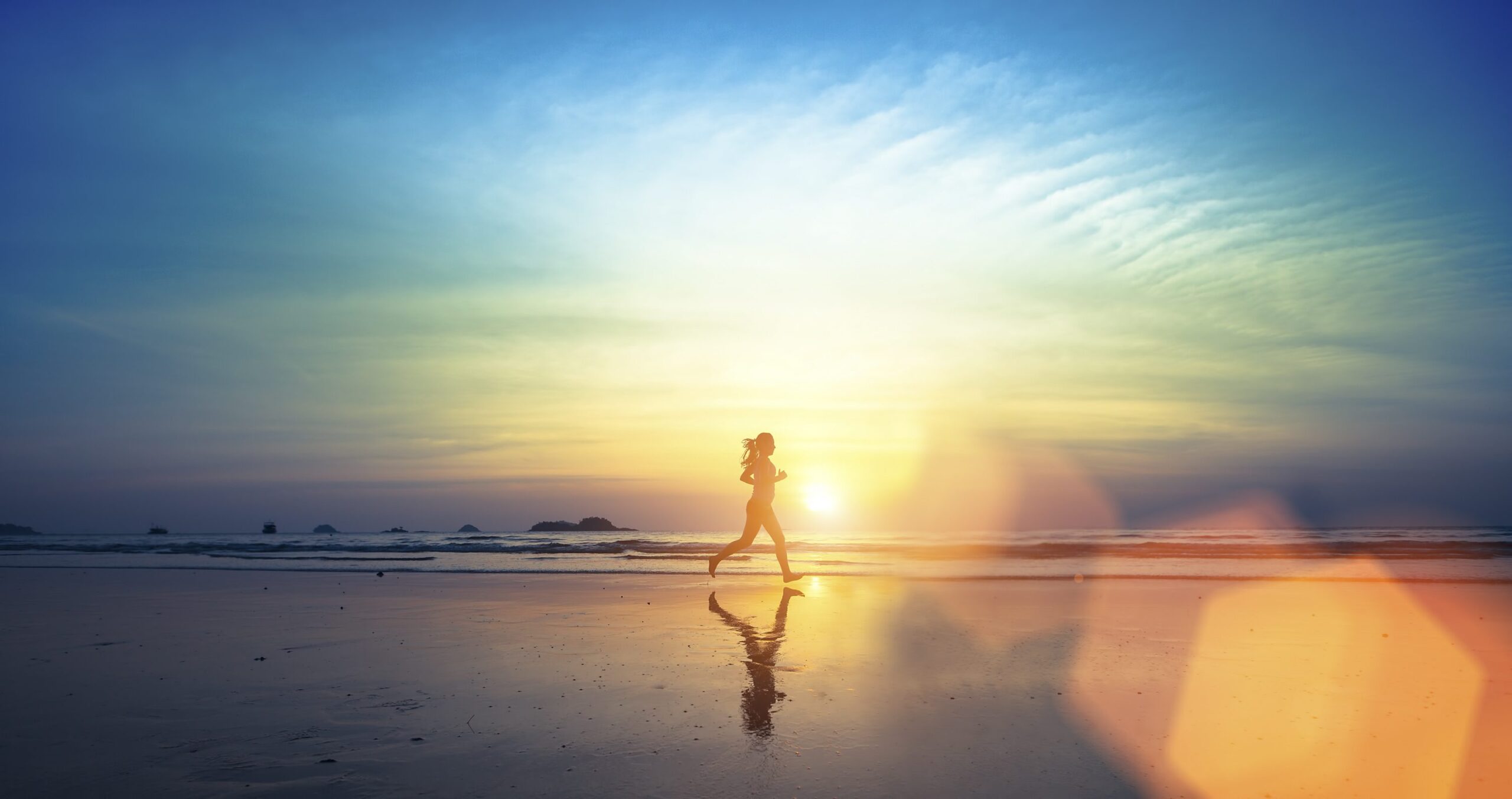
Mệt mỏi, đói và buồn? Hãy thư giãn – bạn đang ngủ đông!
Tháng 4 18, 2023Giữa mùa đông, bạn có thấy mình muốn ngủ nhiều hơn, ăn nhiều hơn và cuộn tròn bên lò sưởi hơn là ra ngoài không? Hãy thư giãn - bạn đang ngủ đông! Tìm hiểu lý do ngay tại đây…

Chúng ta thường hành xử như thể những thay đổi theo mùa chẳng liên quan gì đến lối sống hiện đại. Suy cho cùng, xét theo nhiều khía cạnh, văn minh chính là vượt qua thiên nhiên. Nhưng cơ thể chúng ta chưa hoàn toàn tiến hóa để thích nghi với khí hậu hiện đại này. Chúng ta vẫn nhớ thời tiết đã từng quyết định hành vi như thế nào. Mùa đông, chúng ta quây quần bên đống lửa, sửa chữa dụng cụ và kể những câu chuyện dệt nên nền văn hóa của mình. Chúng ta ôm chặt lấy nhau và ngủ thật lâu.
Bây giờ chúng ta hành động như thể lúc nào cũng là mùa hè, đòi hỏi năng suất cao liên tục ở nơi làm việc và ở nhà.
Nhưng cơ thể chúng ta cần chu kỳ hoạt động và nghỉ ngơi - hàng ngày và hàng năm. Vào mùa hè, khi ngày dài, quá trình trao đổi chất và năng lượng Mức độ tăng lên. Vào mùa đông, chúng ta sản sinh ra các hormone khiến chúng ta buồn ngủ, cho chúng ta thời gian để phục hồi cơ thể, trí óc và tâm hồn. Chu kỳ đó không có gì sai - ngoại trừ việc chúng ta chống lại nó, buộc bản thân phải hoạt động ở "mức độ mùa hè" ngay cả trong mùa đông. Chẳng trách nhiều người cảm thấy chán nản vào thời điểm này trong năm!
Thật đáng buồn phải không?
Bạn có lẽ đã nghe nói rằng chúng ta có thể mắc phải "trầm cảm mùa đông". Thậm chí bạn có thể mắc phải nó. Việc hầu hết các bác sĩ lâm sàng giải quyết vấn đề này thông qua công nghệ (liệu pháp ánh sáng hàng ngày) và/hoặc thuốc men mang lại một góc nhìn thú vị về thời gian của chúng ta. Tuy nhiên, một số người lưu ý rằng tâm trạng chán nản mà chúng ta cảm thấy vào mùa đông có thể có nhiều điểm chung hơn với tình trạng ngủ đông.
Liệu chứng trầm cảm mùa đông có phải là kết quả của nhu cầu vận động hết công suất suốt ngày, mỗi ngày, và chủ yếu là ở trong nhà của cuộc sống hiện đại - tách biệt khỏi chu kỳ mặt trời? Liệu chúng ta có thể ngủ đông một chút không? Một số nhà khoa học cho rằng đó là do thiếu vitamin D ở những khu vực mà góc chiếu sáng mùa đông của mặt trời quá thấp so với tia UVB. Liệu có phải là sự kết hợp của nhiều yếu tố?
Các yếu tố ảnh hưởng đến cảm giác của chúng ta vào mùa đông…
Thiếu ánh sáng
Sự thay đổi ánh sáng có thể ảnh hưởng đến thời gian và chất lượng giấc ngủ của bạn. Chúng ta không nhất thiết cần ngủ nhiều hơn vào mùa đông, nhưng những yếu tố ngoài tầm kiểm soát khiến chúng ta muốn ngủ nhiều hơn. Lượng ánh sáng ban ngày trong mùa đông hạn chế hơn so với các mùa khác, ảnh hưởng đến chu kỳ của cơ thể.
Ánh sáng chói ức chế sản xuất melatonin qua tuyến tùng của não. Melatonin điều hòa chu kỳ ngủ-thức của cơ thể. Thiếu ánh sáng có thể khiến cơ thể sản xuất nhiều melatonin hơn, khiến cơ thể cảm thấy mệt mỏi và uể oải, điều này giải thích tại sao chúng ta có thể cảm thấy uể oải hoặc buồn ngủ vào buổi sáng và buổi tối trong suốt những tháng mùa đông. Việc nhận được tín hiệu ánh sáng đều đặn từ mặt trời - từ bình minh đến hoàng hôn - vẫn rất quan trọng đối với hoạt động của hormone và chất dẫn truyền thần kinh trong mùa đông. Bạn cũng nên hạn chế tình trạng ngủ đêm nhân tạo vào ban đêm để có chức năng hormone khỏe mạnh và giấc ngủ ngon. Và việc ra ngoài càng nhiều càng tốt, ngay cả trong những ngày đông lạnh giá, đảm bảo rằng bạn vẫn nhận được ánh sáng mặt trời tự nhiên vào buổi trưa để hỗ trợ tâm trạng của bạn.
Không khí lạnh hơn
Mùa đông thường nổi tiếng với hóa đơn tiền điện tăng cao khi nhiệt độ giảm và việc sử dụng lò sưởi được bật. Tuy nhiên, việc sưởi ấm có thể gây ra những ảnh hưởng không mong muốn đến chất lượng giấc ngủ. Phòng ngủ và giường ngủ nên tương đối mát mẻ vào ban đêm để tạo điều kiện cho giấc ngủ ngon, nhưng khi không khí quá lạnh, nó sẽ ảnh hưởng tiêu cực đến việc sản xuất melatonin và làm gián đoạn chu kỳ giấc ngủ của cơ thể. Tuy nhiên, không khí quá khô hoặc quá ấm sẽ làm khô niêm mạc cơ thể (như mũi và họng) và khiến cơ thể dễ bị vi khuẩn, vi-rút và các bệnh theo mùa tấn công hơn. Việc thiết lập môi trường phòng ngủ phù hợp sẽ hỗ trợ giấc ngủ.
Thay đổi thói quen ăn uống
Trong khi mùa hè mang lại lượng đường tự nhiên dưới dạng trái cây, mùa đông lại thường khiến bạn thèm ăn carbohydrate đậm đặc và bổ dưỡng hơn. Ăn quá nhiều những loại thực phẩm này, tránh thịt và mỡ động vật lành mạnh, cũng như lạm dụng thực phẩm chế biến sẵn với đường, chất béo tinh chế (dầu hạt/rau củ) và calo cao/rỗng có thể ảnh hưởng đến nồng độ hormone trong cơ thể. Việc tránh xa thực phẩm chế biến sẵn và đồ ăn vặt càng trở nên quan trọng hơn trong mùa đông.
Liên quan đến quá trình trao đổi chất và cảm giác thèm ăn, hormone leptin cũng bị ảnh hưởng bởi việc ăn quá nhiều những loại thực phẩm này. Sự thay đổi nồng độ leptin trong cơ thể sẽ làm gián đoạn chu kỳ giấc ngủ, và những gián đoạn này sẽ khiến cơ thể tiếp tục thay đổi nồng độ hormone. Khi chu kỳ giấc ngủ bị gián đoạn, chúng ta sẽ thèm ăn những thực phẩm đó nhiều hơn và không biết khi nào mình đã no. Dầu hạt có thể làm mất cảm giác no và khiến chúng ta liên tục đói. Nếu tiếp tục ăn uống như vậy, giấc ngủ sẽ bị ảnh hưởng – đây là một vòng luẩn quẩn.
Mẹo giúp xua tan mệt mỏi mùa đông và tràn đầy năng lượng!
 Tập thể dục thường xuyên – Tập thể dục có thể là điều cuối cùng bạn muốn làm vào những buổi tối mùa đông u ám, nhưng bạn sẽ cảm thấy tràn đầy năng lượng hơn nếu tham gia một hoạt động thể chất nào đó mỗi ngày. Nó cũng sẽ giúp bạn đối phó với thời tiết lạnh giá.
Tập thể dục thường xuyên – Tập thể dục có thể là điều cuối cùng bạn muốn làm vào những buổi tối mùa đông u ám, nhưng bạn sẽ cảm thấy tràn đầy năng lượng hơn nếu tham gia một hoạt động thể chất nào đó mỗi ngày. Nó cũng sẽ giúp bạn đối phó với thời tiết lạnh giá.
Lựa chọn thực phẩm lành mạnh – tất nhiên rồi. Chúng ta đều biết rằng thực phẩm NGUYÊN CHẤT chất lượng tốt, giàu dinh dưỡng từ động vật và thực phẩm thực vật theo mùa sẽ giúp chúng ta cảm thấy khỏe hơn. Đừng viện cớ – bạn sẽ chỉ phải trả giá khi mùa hè đến thôi.
Ngủ nhiều hơn – hãy thuận theo dòng chảy tự nhiên của cơ thể. Đi ngủ sớm hơn vào mùa đông, và khi ngày dài hơn khi mùa hè đến gần, THÌ bạn có thể ngủ muộn hơn. Tắt các thiết bị điện tử – bạn có thể muốn giết thời gian bằng cách cày phim trên Netflix, nhưng liệu một tập phim nữa của chương trình truyền hình yêu thích có thực sự đáng giá hơn sức khỏe của bạn không? Điều này cũng đúng với điện thoại và máy tính xách tay của bạn.
Bổ sung Vitamin D3: được biết đến là vitamin ánh nắng, khi không được cung cấp đủ, chúng ta có thể cảm thấy mệt mỏi và tâm trạng chán nản. Hãy ra ngoài trời nắng vào buổi trưa càng nhiều càng tốt, nhưng hãy kiểm tra bằng ứng dụng như D Minder xem có đủ tia UVB ở vĩ độ của bạn để tạo ra vitamin D hay không. Nếu không, dầu gan cá tuyết, cá béo, lòng đỏ trứng, mỡ động vật (đặc biệt là mỡ lợn thả rông) và gan là những nguồn thực phẩm tốt.
Năng lượng & Sức sống: đúng như tên gọi, sản phẩm này có thể giúp bạn vượt qua những tháng mùa đông khi chúng ta bắt đầu cảm thấy căng thẳng và bồn chồn. Sản phẩm hỗ trợ bạn đối phó tốt hơn với cuộc sống thường nhật và mang lại cảm giác bình yên, tràn đầy sức sống khi bạn bị mắc kẹt trong sự đơn điệu của công việc và cuộc sống gia đình, thay vào đó là được thư giãn trên một bãi biển nhiệt đới.
Opti CoQ10 150mg: Loại enzyme nhỏ bé tuyệt vời này có thể cung cấp cho bạn nguồn năng lượng dồi dào cần thiết. Nó thường được sử dụng bởi những người mắc bệnh tim, nhưng cũng có nhiều công dụng khác. Nó cũng được các vận động viên sử dụng để tăng cường khả năng tập luyện và những người bị rối loạn năng lượng và mệt mỏi. Nó hỗ trợ ty thể (nguồn năng lượng trong mỗi tế bào) hoạt động tốt hơn.
Hãy bổ sung vitamin và khoáng chất tổng hợp. Đừng bỏ qua những dưỡng chất thiết yếu. Uống viên đa vitamin hàng ngày có thể giúp bổ sung một số dưỡng chất mà chúng ta có thể bị thiếu hụt trong chế độ ăn uống hàng ngày. Hãy thử Nam hoặc Đa năng nữ.
Việc chăm sóc sức khỏe sẽ giúp bạn vượt qua những ngày mùa đông buồn bã!
